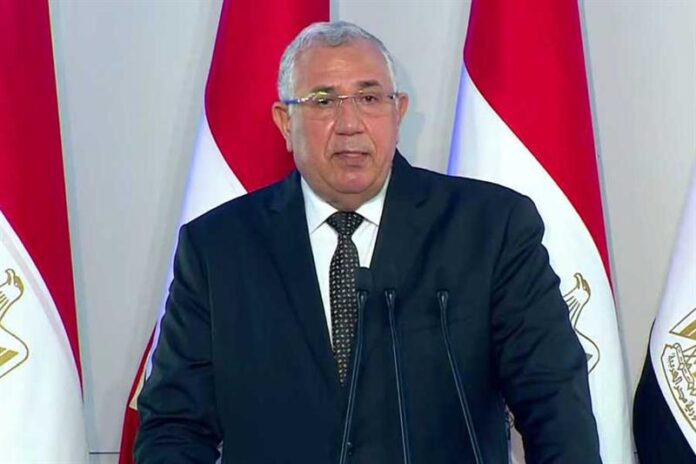Egypt has established 10 joint model farms in nine African countries as the North African nation seeks new agriculture and food security cooperation across the continent.
The Ukraine/Russia war has opened a new door for cooperation between Egypt and other African countries, especially in agriculture and food security sectors.
Egypt’s Minister of Agriculture El-Sayed El-Quseir confirmed the development saying his country had established joint model farms in South Sudan, two farms in Zambia — Mwembeshi Farm and Kabwe Farm – Zanzibar, Niger, the Democratic Republic of Congo (DRC) , Mali, Togo, Uganda and Eritrea.
He was speaking at a recent meeting in Cairo, Egypt’s capital where he was briefing his Gabonese counterpart, Charles Mve Ella.
The meeting between the two agriculture ministers was on the need to boost bilateral cooperation in various agricultural sectors.
El-Quseir said Egypt’s idea of establishing joint model farms in Africa dated back to 1995 when the project was launched by the Egyptian Fund for Technical Cooperation with Africa, an organisation affiliated to the country’s Foreign Affairs Ministry.
The first farm was established in Niger in 1998.
“The objectives of such projects include enhancing cooperation in the agricultural field with African countries, as well as transferring Egyptian agricultural expertise and technology to African countries, and conducting joint agricultural research aimed at improving the productivity of various crops,” El-Quseir told Ella.
“These farms provide promising opportunities for opening new markets for Egyptian agricultural products and for exporting Egyptian crops and fruits to African countries.”
He added: “The Egyptian farms projects also aim to achieve sustainable development in African countries, build capacities and raise the skills of their available cadres in the field of agriculture.
“These projects seek to increase the productivity of African strategic crops, transfer Egyptian agricultural technology, expand the use of agricultural mechanisation, support marketing systems, implement partnerships with the Egyptian private sector to invest in African countries and achieve added value for agricultural products.”
El-Quseir added the joint farms are divided into two types.
“The first is the model farms providing extension services. The areas of these farms range from 150 to 500 hectares. They aim to apply the extension agriculture model on all activities, whether field crops, horticultural, poultry, livestock, fisheries or agricultural production.
“The second type is the productive farms, whose areas reach more than 1 000 hectares and which depend on agricultural investment activity. These farms are subject to the investment laws in the African countries in which they are located.”
A statement issued by the Agriculture Ministry, added that El-Quseir had stressed during the meeting of the Egyptian government’s support to Gabon, in the implementation of directives issued by Egypt’s President Abdel Fattah al-Sisi to support African countries across all fields related to the agricultural sectors.
The two agriculture ministers also agreed in establishing a joint fish farm, which will allow Egypt to transfer to Gabon modern agriculture technologies and the formation of a joint agricultural technical committee to implement and follow up on the reached agreements.
The Egyptian minister further noted that the areas of cooperation with Gabon included poultry, developing high-yielding seed varieties, such as rice and corn, enhancing agricultural mechanisation and boosting investment opportunities, in addition to cooperation in the fields of agricultural research, training and capacity-building.
Ahmed al-Attar, the head of the Agricultural Ministry’s Central Administration of Plant Quarantine, said Egypt had succeeded in fostering agricultural cooperation with African countries and restoring its leading role in the continent.
“Egypt has been expanding projects to establish joint farms with African countries. It now owns 22 approved facilities for importing wheat in other countries, including in India, Russia and Ukraine. India, offering high-quality wheat, was chosen as an alternative market in light of the Russia-Ukraine crisis.”
He added that Egypt consumes about 20 million tonnes of wheat annually.
“Wheat production in Egypt is at 8 million tonnes, and is expected to reach 10 million this year. The state imports about 60% of its wheat needs,” al-Attar said.








